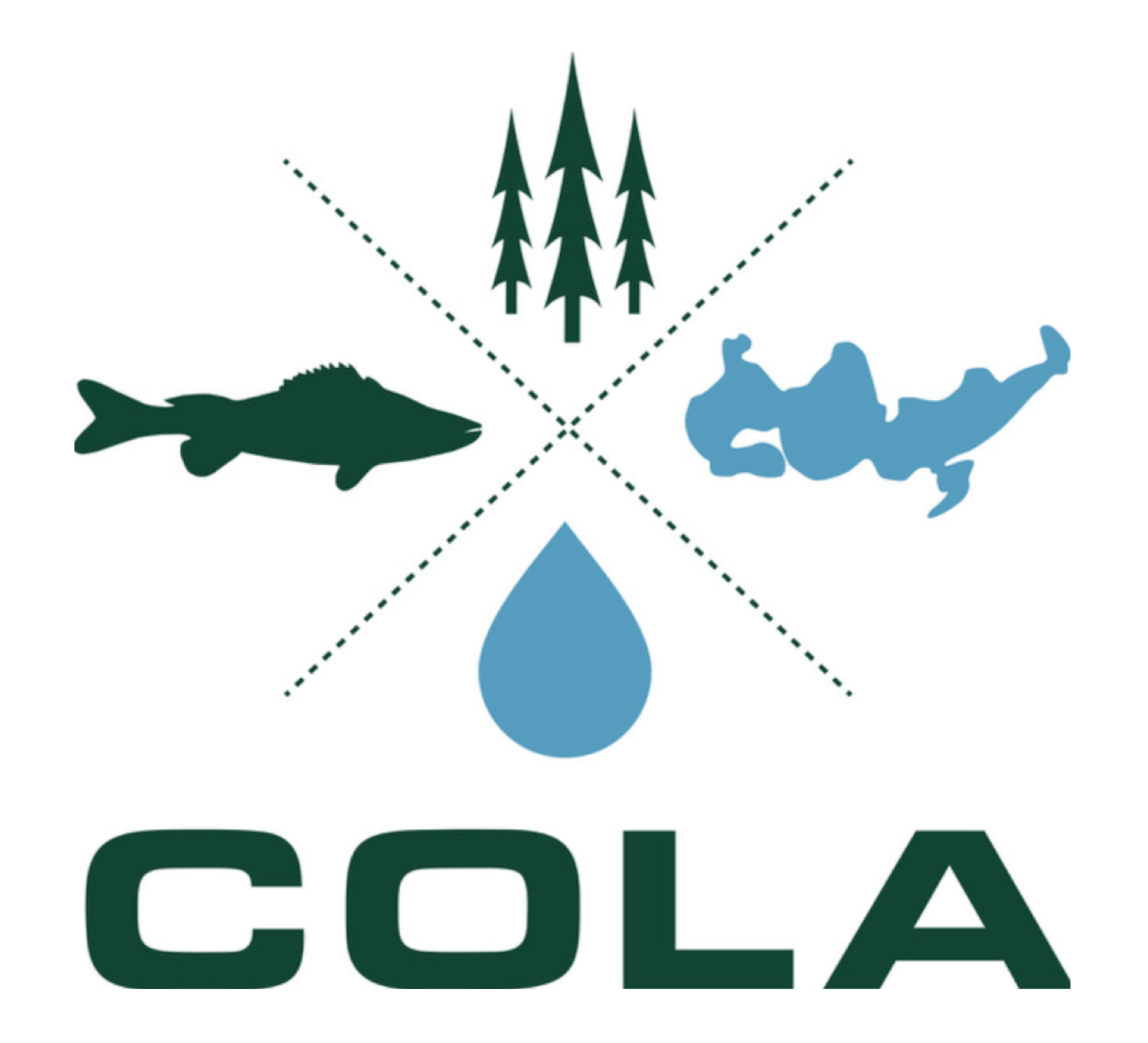Please Help Lac Courte Oreilles
Attend or send comments regarding WDNR’s Hearing on November 8 to Support Strengthening the Protection of Water Quality in Lac Courte Oreilles
The Courte Oreilles Lakes Association asks that all who value Lac Courte Oreilles (LCO) attend or comment on the November 8 hearing by the Wisconsin Department of Natural Resources (WDNR). This hearing is focused on setting a lower phosphorus limit for the LCO lakes. It is critical that WDNR hear from as many as possible that a new, lower protective standard of 10 parts per billion (ppb) must be applied to the lakes.
Lac Courte Oreilles is designated an Outstanding Resource Water and also a unique, two-story fishery. It is one of only five such lakes in Wisconsin with a narrow layer that is cold enough and with enough oxygen to support both cisco and whitefish, which are the primary food source for walleye and musky. Preserving this habitat is essential to the lake ecosystem.
Lac Courte Oreilles has faced phosphorus pollution for decades. In 2014, LCO’s Musky Bay was designated by the EPA and WDNR as an impaired water body because of high phosphorus concentrations. In 2018, all of Lac Courte Oreilles was listed as an impaired water body because of low dissolved oxygen – a result attributable to high phosphorus concentrations.
Phosphorus levels in LCO have increased substantially. Based on research by the US Geological Survey, pre-development phosphorus concentrations in Musky Bay were 10 ppb or lower. The 2014-2018 average was 25.9 ppb. In 2011 and 2012, Musky Bay’s phosphorus concentrations exceeded 40 ppb.
For all of LCO, the 2014-2018 average phosphorus concentration was 13.8 ppb. While this is lower than the current Wisconsin criterion for two-story lakes of 15 ppb, dissolved oxygen levels have been declining summer after summer. Despite meeting the phosphorus standard, LCO is still experiencing extensive whitefish and cisco die-offs. There is ample evidence showing that high levels of phosphorus led to oxygen depletion in the critical habitat layer and that cisco and whitefish are dying from lack of suitable habitat. It only makes sense to establish a more protective phosphorus standard and provide some hope of preserving one of Wisconsin’s premier fishing/recreational lakes.
In 2016, COLA presented evidence to WDNR showing that the current 15 ppb standard is inadequate, and an upper limit of 10 ppb of phosphorus is essential to save LCO’s two-story fishery.
WDNR did not act, so COLA and the LCO Band of the Lake Superior Chippewa Indians joined in legal action brought in Dane County Circuit Court to force the agency to set an appropriate phosphorus standard.
On July 2, 2019, after more than three years of WDNR foot-dragging and legal maneuvering, COLA and the LCO Tribe prevailed. The Court demanded that WDNR develop an appropriate phosphorus standard for LCO.
WDNR finally (if reluctantly) proposed that a lowered phosphorus limit of 10 ppb be established for LCO after public review. But, and this is a big “but,” WDNR included an option for the new rule – maintain the current 15 ppb!! This is unprecedented, and it indicates that WDNR has not yet moved beyond the recent years of willful environmental neglect.
We cannot let this continue any longer – the status quo is not acceptable. Property values are jeopardized – every one-meter decrease in water clarity leads to an eight percent decrease in property value. Recreational uses – fishing, swimming, boating, and the simple pleasure of enjoying a clean lake – are threatened by toxic blue-green algae, mats of aquatic vegetation, and invasive plants. This cannot be allowed to happen.
COLA has done everything it can to preserve LCO. Examples include leading the effort to inspect/upgrade septic systems; instituting a shoreland restoration program; controlling invasive aquatic species, re-stablishing musky habitat in Musky Bay; mapping erosion-susceptible agricultural and forest lands; promoting reasonable and effective zoning; and encouraging cranberry growers to better manage their water use.
Now we really need your help. Here are two ways to preserve LCO’s water quality.
Attend the November 8, 2019 hearing, scheduled for 10 AM, Bass Lake Town Hall
Email, call, or send a letter (sample email/letter) directly to:
Kristi Minahan (608) 266-7055
Department of Natural Resources
Bureau of Water Quality WY/3
101 South Webster Street
PO Box 7921
Madison, WI 53707
DNRAdministrativeRulesComments@wisconsin.gov
Thanks so much for your help!
Jim Coors, COLA Communications, communications@cola-wi.org, 608-628-0694
Note: If you plan on attending the meeting, please let COLA know (communications@cola-wi.org). For a pdf of this message, click here.
